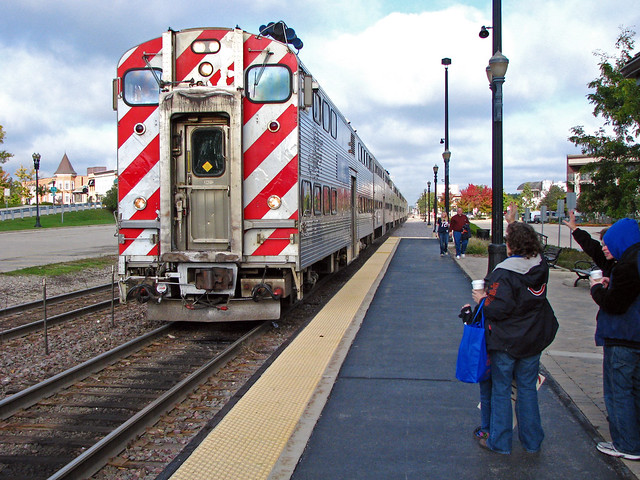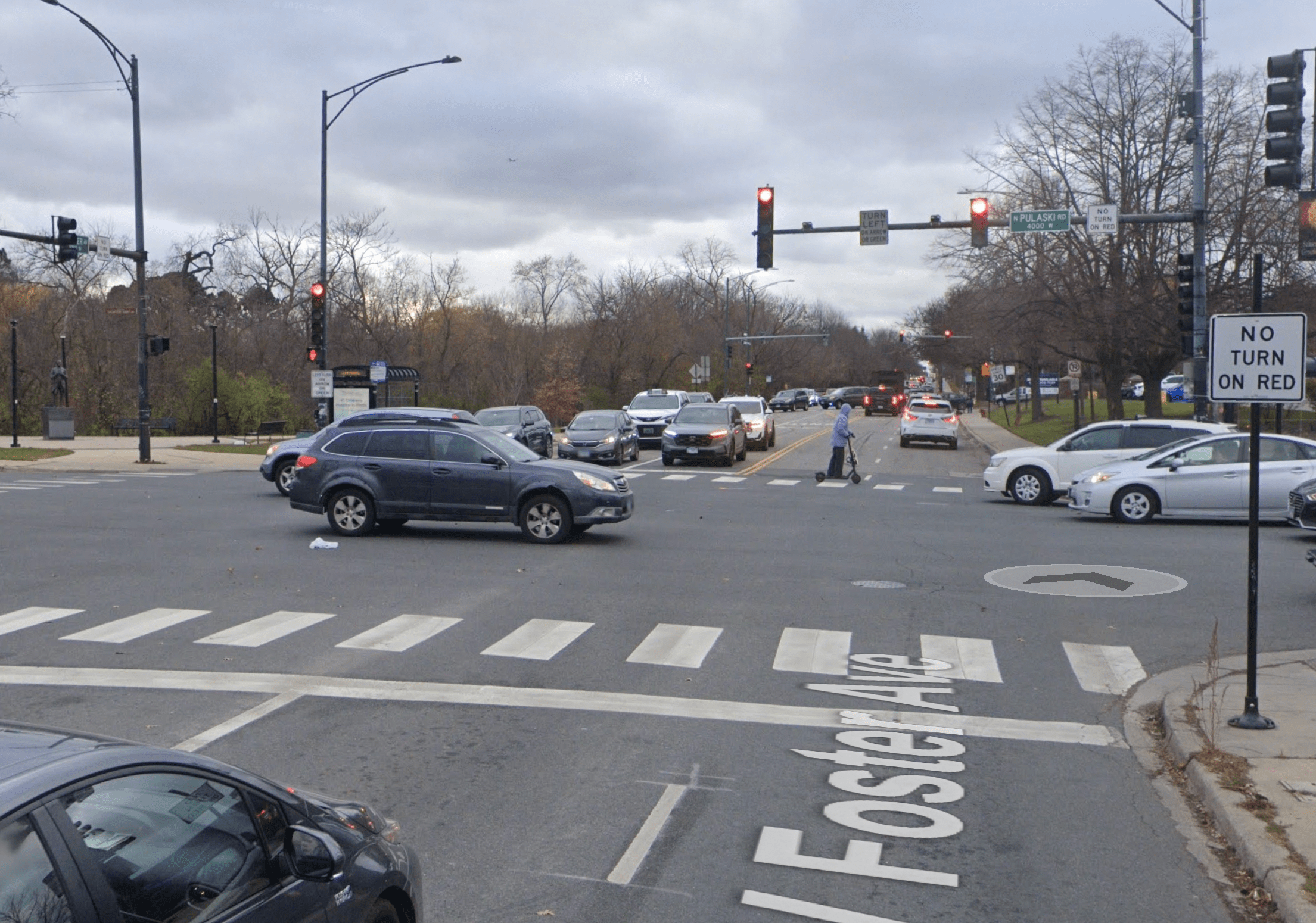
Two years after launching its first-ever strategic planning process with a series of public meetings, Metra is at last finalizing basic goals for the plan. Our preview last month showed that the draft plan focused as much on administrative matters as it did on customers and services. That split focus remains, but board members are now debating whether the plan should shift in one direction or the other.
Metra's director of strategic capital planning, Lynnette Ciavarella, launched a discussion about the draft plan's ten goals and objectives at the board's August meeting. The preliminary goals included "continuing to provide a high quality travel experience," financial stability, "improving agency-wide efficiency," integrating with regional transportation networks, and expanding the system "as resources allow." Ciaverella then asked the board, "What's missing?"
Some board members contended that the strategic plan doesn't engage enough with the outside world, while one board member wanted Metra to stick to the basics. John Plante, a recently retired CTA manager who was appointed to Metra's board last October, spoke up first. Plante wanted Ciaverella to add "innovative financing" – namely, public-private partnerships and land value capture, which could hopefully help fund expanded Metra service.
Don DeGraff, appointed in 2011, said he felt there was little coordination among the different transportation providers and planning agencies. He asked, "how does Metra fit with CTA, Pace, Illinois Department of Transportation, and the [South Shore Line], to make sure there’s an effective regional plan?" He continued, "we need a Daniel Burnham: someone to come up with a plan to allow us to be successful in the northeastern Illinois market." He called on Metra to take on that coordinating role.
Ciaverella assured the board that the strategic plan was coordinated with the Regional Transportation Authority's strategic plan and the region's long-range GO TO 2040 comprehensive plan. Metropolitan Planning Council vice president Peter Skosey told me that "the region as a whole has a challenge connecting land use and transportation," and that Metra can play a greater role in station-area planning "to ensure better connections to jobs and housing."
One board member, by contrast, wants to throw out half the goals. Director Norman Carlson, appointed just before the CEO scandal came to light, explained that "so often planning doesn't take into consideration operating perspectives." Carlson cited his railroad consulting experience at Arthur Andersen to say "an organization can logically take on 3-5 objectives [to] make any measurable progress." He said that Metra should take on just four goals, but list a fifth goal to be deferred.
Carlson suggested that the strategic plan focus on railroad operations and management. The plan should "keep safety at the forefront of the railroad," maintain workforce quality, ensure financial stability, and "tell people what Metra is doing and why." Those interconnected goals would lead to "secondary effects" that address the other, missing goals.
Carlson also dismissed system expansion, pointing out that it costs $30-35 million to add a single train during rush hour (although less during off-peak hours). "We don't have the money to do any kind of expansion, and any expansion has to be self-funding" so as to not sacrifice existing service. Carlson intimated that it may not be worth extending lines, as the outer three zones only contribute one percent of riders, and that adding tracks should be a higher priority.
Undoubtedly, Metra does need to think strategically about how to improve its operations. Metra, and the freight railroads who operate four lines, were especially unprepared for the extreme winter earlier this year. They abandoned customers on unsheltered platforms, and communicated poorly when they canceled trains. Customers got a bitter taste then for the long, cascading delays that occur when old track switches, kept in service long after obsolescence, suddenly fail.
MPC's Skosey argues that Metra "should strive for constant improvement" operationally, but should also aim higher. Metra, like all transit agencies, needs to show that transit isn't just a way to get around, Skosey said: "Transit affects quality of life, economic development, has a profound impact on the environment, and can improve the lives of lower income residents. These should be goals [within] Metra's strategic plan."
This could be a turning point for Metra. Will the nation's second largest commuter rail system learn to be more responsive to its customers – who need reliable, frequent service to reach jobs that have scattered from the region's core – or will it continue to be a well-run railroad that just happens to carry daily commuters?
When Metra staff incorporate the board's feedback into the next revision, they should resist holding on to the longstanding attitude that Metra runs best without passengers. Explicitly including top-level goals that address passengers' needs will enable Metra to reorient itself around its customers -- most of whom need not only an efficient and fast railroad, but access to opportunities across the entire region.



